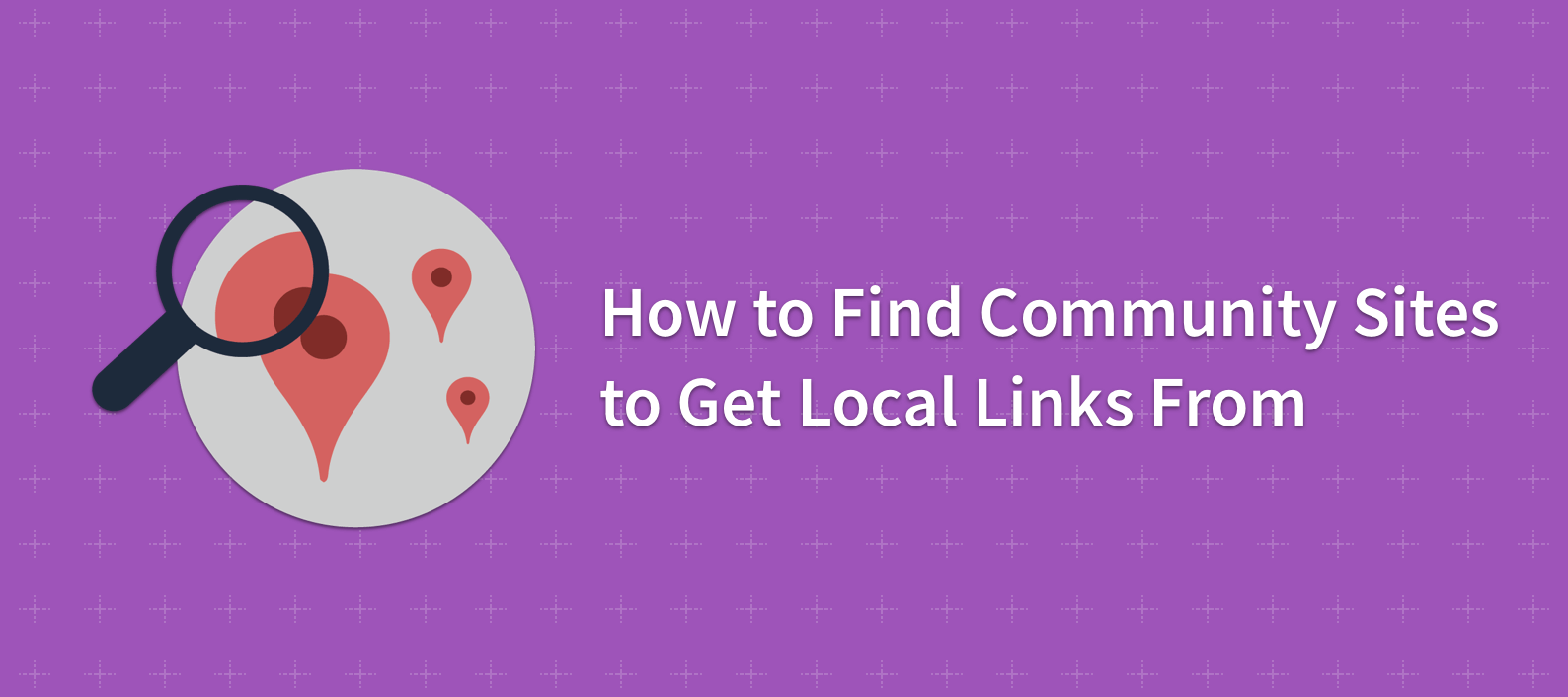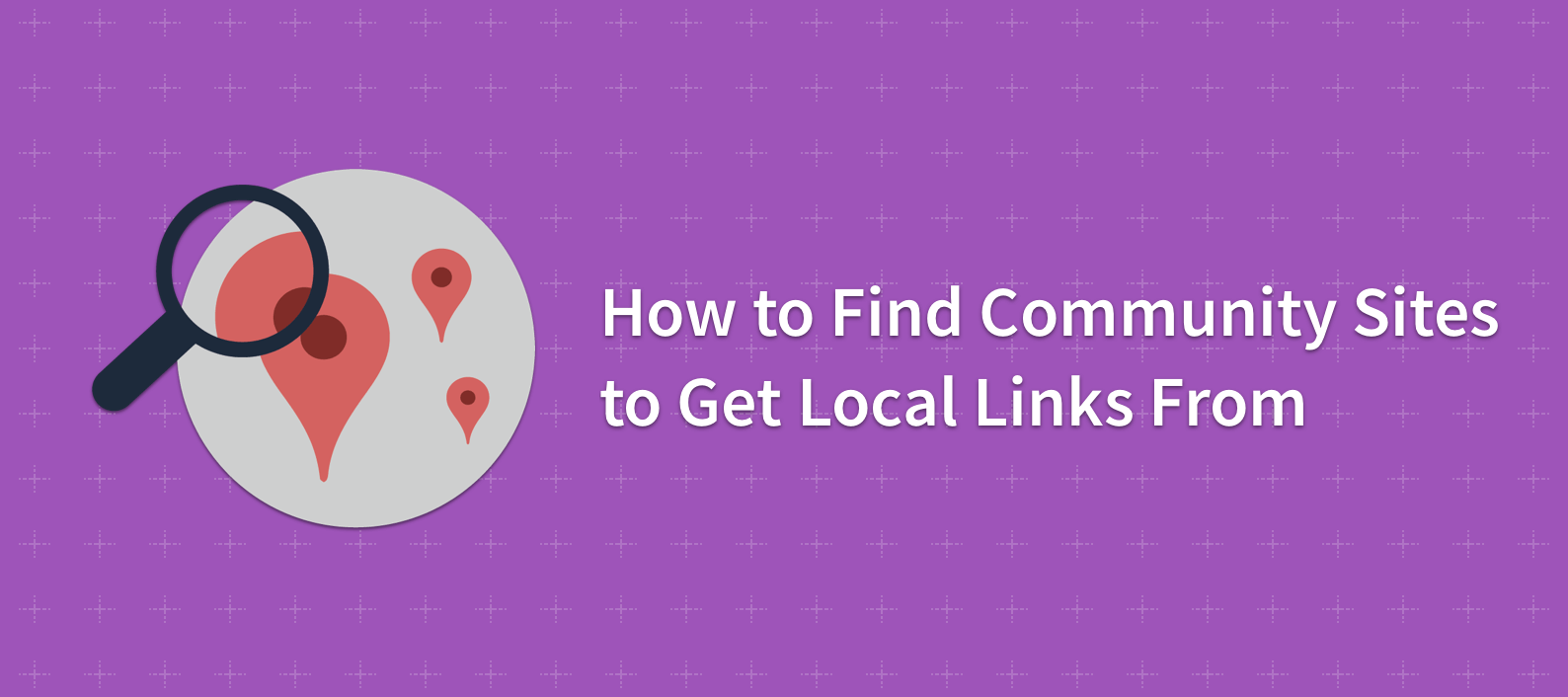
Link building is to SEO what PB&J is to bread—a perfect fit. There’s no denying the power of links for boosting rankings, but acquiring the right kind of links is a different story. For local businesses, the prospect of link building can be daunting.
Conventional wisdom dictates that you must have a good quantity of links, from a decent variety of high quality (and relevant) websites, with varied anchor text, to a range of pages within your site.
It’s a tough job for even the most seasoned of SEO pros but, for a local business with little likelihood of a top tier link (read Huffington Post, the New York Times, Entrepreneur, etc.), successfully link building for a ranking boost can seem about as likely as scaling Yosemite’s El Capitan.
But what if local link building was different? What if links from other local sources were as important as high profile referrals are in conventional link building? Actually, they are.
Our most recent Expert Local Business Link Building Survey discovered that 75% of SEO experts class local community website links as the most valuable link source for boosting search rankings as a local business. 70% cited local news and content sites and 60% chose high domain authority sites.
Of course, finding neighbors and other local organizations with both influence and a willingness to link to you is no small task. Our Survey was definitive—link building will not get easier this year. In fact, 35% of link builders believe it will become harder. This makes having an actionable strategy for finding local community sites more important than ever.
Benefits of acquiring links from local community sites
According to the Moz Local Search Ranking Factors survey, the number of inbound links to your domain from other local domains sits at number four on the “Top 30 Competitive Difference Makers” ranking. That means that acquiring more links with a local origin will make a tangible difference to your search position.
There are additional rewards to reap from local community site links, too. If you’re able to get a link from a local church group, a local group founded on ethnicity, local business groups or a local chamber of commerce, you’re mimicking the impact of better local SEO rankings by obtaining visibility within your local target market. This could translate to more in-store visits or more sales.
As Search Engine Land columnist Greg Gifford explains,
“If you get quality links on local sites, they’re links that humans will actually click on. Those local links will bring you more traffic, and they’ll increase your brand’s visibility.”
What to look for when building local community links
Although high domain authority sites ranked just third on our Expert Local Business Link Building Survey table of importance, quality control is still essential. In fact, our survey found that quality and authority of links was the most important consideration for local link builders.
That doesn’t mean you need to judge every community site by a single inflexible metric such as domain authority, but you should have some criteria against which potential link sources are measured.
This list may include:
Frequency of update
If the site is updated very infrequently (such as once every few months) it’s a good indication that the site is small without much of an audience.
Audience engagement
If the community site lacks an engaged audience, you’re unlikely to receive much traffic from a link. Check how often visitors post comments or review the share counts on social media buttons. Even without much engagement, you may weigh this seemingly negative point against the need to diversify your link profile (90% of SEO experts believe link diversity is valuable).
Size of site
Study how big the site is. If it’s a longstanding local community site, you should expect the site to be a fair size. Look first at the menu – how many pages and sub-menus can you see? If they are sparse, head to the blog.
How far back do the archives go? The sitemap should give you an at-a-glance page count. If you can’t find it, head to Google and use the site operator search for a rough idea of how many pages are indexed (type “site: www.communitysite.com” in Google Search).
Getting tactical
Now we know what we’re looking for, it’s time to start sniffing out community sites to get those local SEO backlinks from.
Set up a spreadsheet or other record of progress
Before you dive head-first into outreach and local link building, you need a structure in place to record organizations you’ve reached out to, responses, and confirmed links.
You can do this easily in Excel or Google Sheets. Have one column for the community site link, a cell for notes, a status column and a date of last contact for an at-a-glance overview of progress.
How to find likely link partners
SEMRush’s Fernando Angulo has multiple suggestions for ways you can find local community sites and generate local links. One recommendation is to write about other local organizations on your own site and let them or your local business group know—they’re more likely to then return the favor and link to you.
Another option is to write a local news piece or an update about your own local community involvement and share that with your local newspaper, church or youth group as appropriate.
Mike Ramsey from NiftyMarketing has compiled a long list of ways to get links from local community sites. He suggests reaching out to your local alma mater (if applicable) and suggesting a story about yourself, partnering with a local charity and doing a ‘like drive’ or approaching local teams such as the high school basketball team or little league team with a sponsorship proposal with a link in place of a plaque at the end of the season.
Mike says,
You can also find local sponsorship opportunities by using custom searches like:
inurl:sponsors “City name”
intitle:sponsors “City name”
intext:sponsors “City name”
Another option is to compile a list of other local businesses and then review their own backlink profiles. You can use a tool like Moz’s Open Site Explorer to do this. Just drop in the web address of another local business and it will return a list of sites linking to that domain. Go through the list and pick out the local community sites. Add them to your link building spreadsheet to reach out to later. Repeat this as many times as you can with any local business. You can use Google Maps or Yelp to find local businesses when you’ve exhausted your own local knowledge.
How to perform outreach for local SEO link building
The approach you take when reaching out to get local links use will vary depending on the type of community organization you’re reaching out to. However, as a rule of thumb you should open with the fact you’re a local business and give a concise (one or two line) overview of why you’re getting in touch. Include specific details to establish relevance.
- If you’re approaching your alma mater with your success story, for example, you’d reference the year of graduation and your major.
- If you’re trying to get a link from your community newspaper by providing them with a news bulletin from your firm, include a quick overview of your story in the first few lines.
Keep track of all of your progress on your spreadsheet to ensure you’re working efficiently.
We’d love to hear your thoughts
How do you approach link building for your local business or local business clients? What tips do you have for identifying local community sites and securing a link from them? Share your suggestions, ideas and success stories in the comments.


